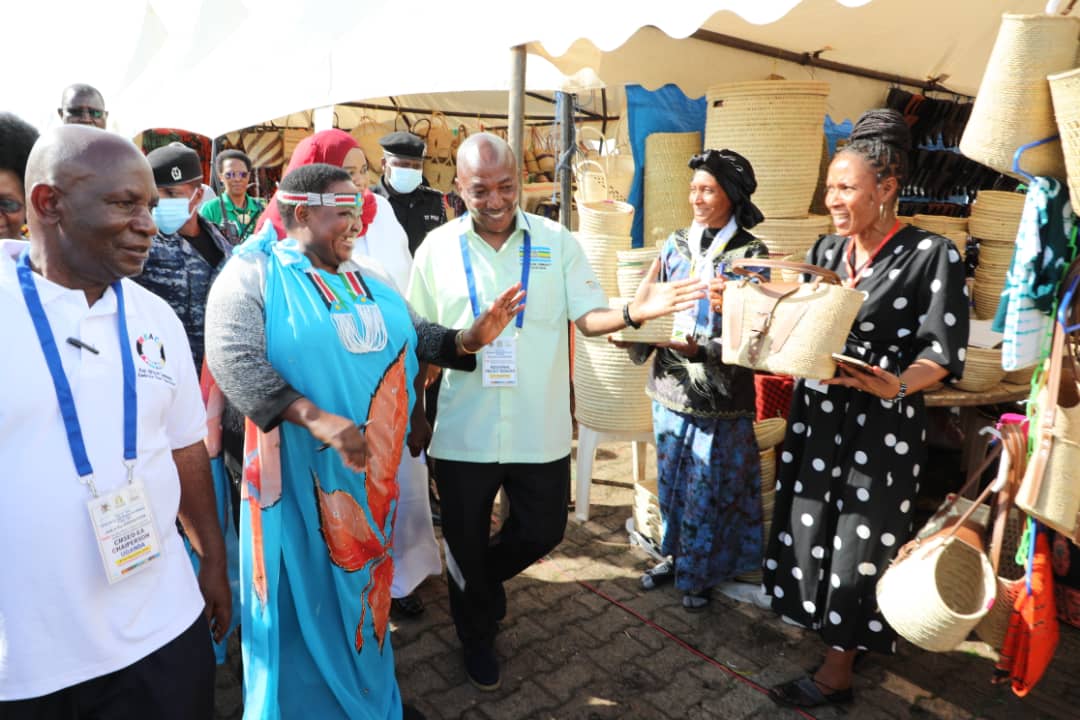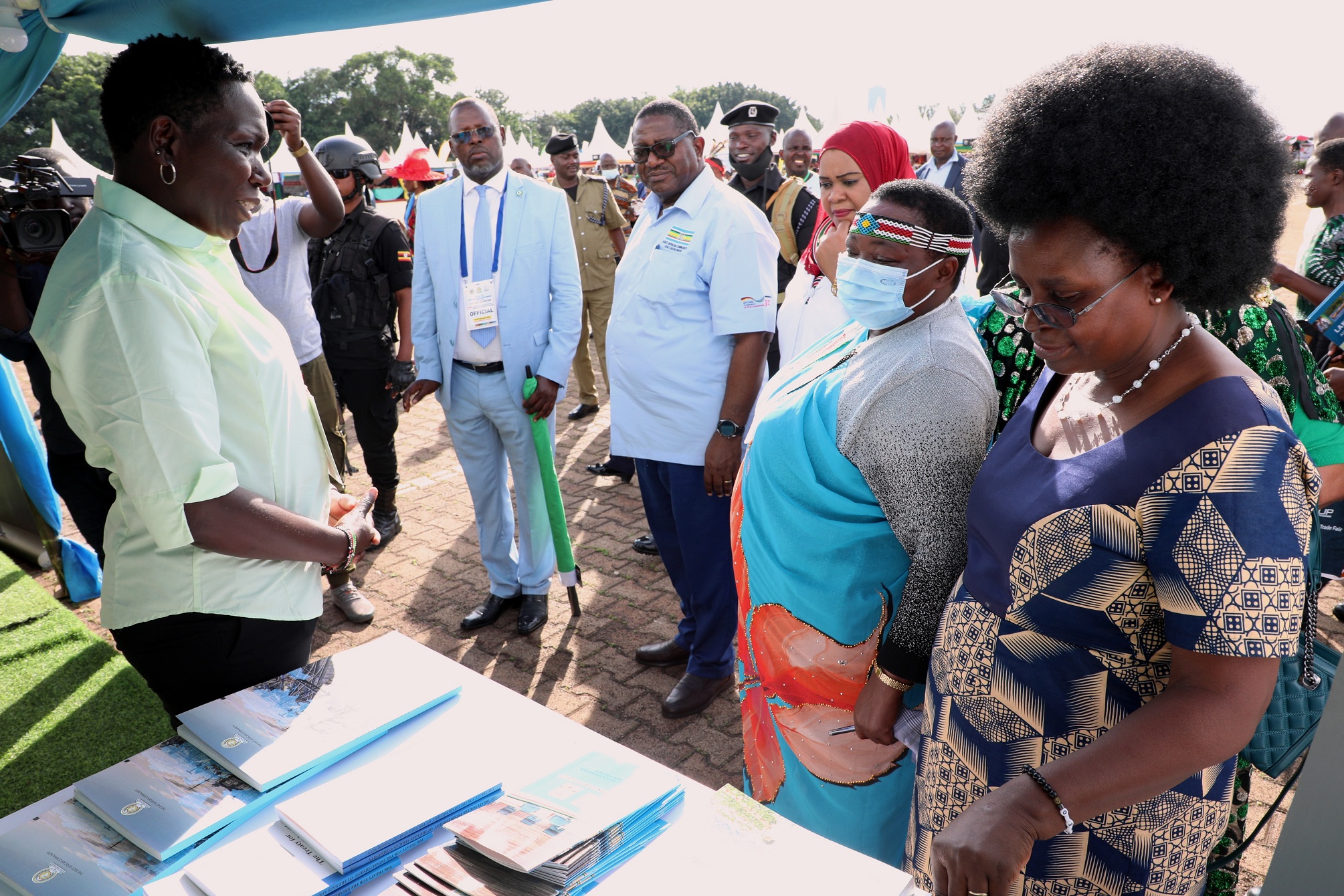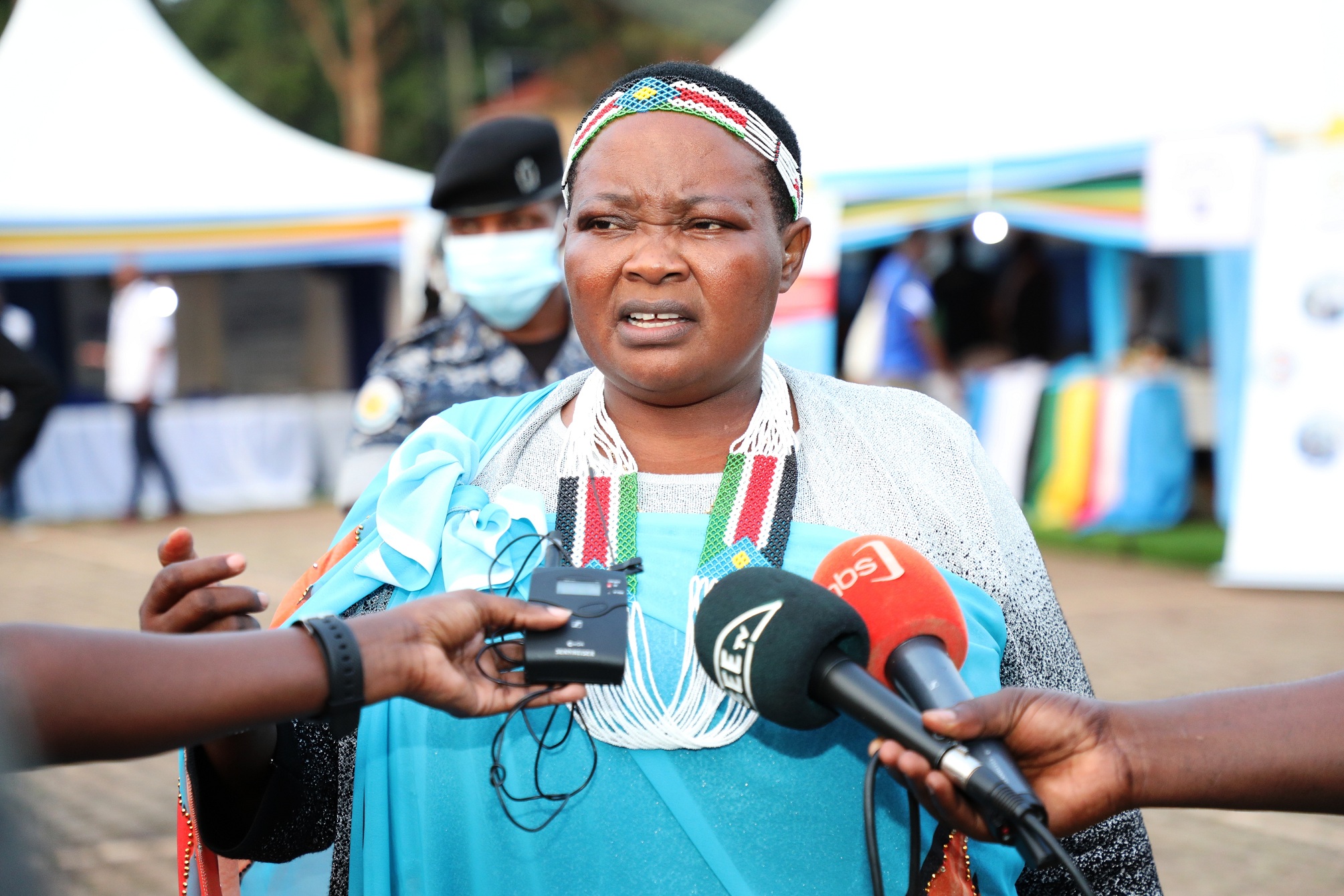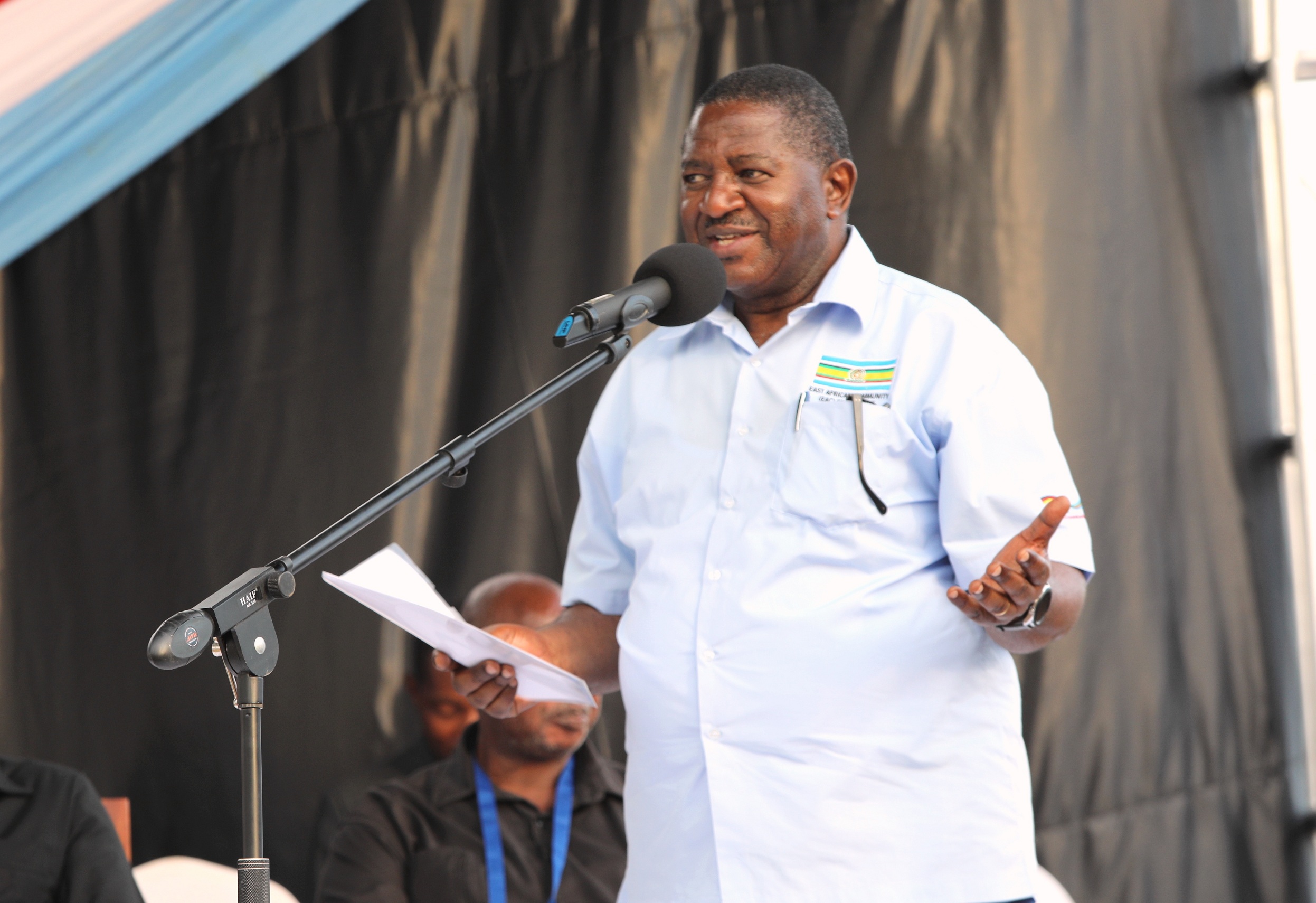
Hasten integration to create a bigger regional market, President Museveni urges EAC Partner States
East African Community Headquarters, Arusha, Tanzania, 12th December, 2022: The seven (7) East African Community (EAC) Partner States have been urged to hasten integration to create a bigger market for businesses in the region.
Ugandan President Yoweri Museveni said that East Africa’s small, disintegrated economies can do so little in terms of trade and investment, adding that Partner States need to integrate as a matter of survival to create bigger markets.
President Museveni said that it was unfortunate that Africa, with all its natural resources, contributes only 3% to global trade.
“The reason for this paradoxical situation is quite obvious. It is simply because colonialists split us into small pockets of economies called “sovereign countries” by creating artificial borders. Through these borders, we have continued to compete with each other over markets, creating tariffs and non-tariff barriers and all sorts of other obstacles between ourselves,” said President Museveni in a speech read on his behalf by Ugandan Prime Minister Robinah Nabbanja during the official opening of the 22nd EAC Micro, Small and Medium Enterprises at Kololo Independence Grounds in Kampala.
The annual trade fair runs from 8th – 18th December and features an estimated 1,500 exhibitors from all the seven Partner States.
“We have not fully exploited and harnessed our competitive advantages by working together in collaboration. On account of this, our countries continue to lag behind because we are not fetching a competitive price fromour products,” said President Museveni.

The Head of State said that Africa does not add value to its raw materials but sells them at giveaway prices, hence the continent’s persistent low participation in global trade.
President Museveni disclosed that MSMEs contribute 60% of the region’s GDP, adding that the establishment of the African Continental Free Trade Area (AfCFTA) was a huge opportunity to boost Pan-African trade, as well as strengthen regional value chains.
“The AfCFTA will increase the market size to 1.42bn representing 16.72 per cent of the world population. The key advantage of the small businesses within our economy is that they are home grown and 99 per cent belong to our indigenous people. They create direct employment for our people, create wealth and are a springboard for entrepreneurship within our region as well as support a growing middle-class, which in turn fuels greater demand for goods and services,” he said.
President Museveni described SMEs as the key drivers of regional development with an estimated 6 six in every 10 Africans working for an SME, adding that the sector was responsible for 8 in 10 new jobs.
“A growing and connected small business can help deliver financial inclusion for an entire community. When an SME grows, everyone connected to it grows as well,” he added.
The President said that despite small businesses contributing greatly to the development of regional economies and supporting intra-regional trade, they continue to face various challenges including: lack of access to affordable financing, limited skills for production and poor standards and quality of products among others.

“As a result of these challenges, the MSMEs have a high mortality rate as they do not get to live and grow into sustainable businesses that can contribute to the economic development of our region,” said the Head of State.
The President said that the annual Trade Fair provides an opportunity for MSMEs in the EAC Partner States to network, share innovations, support technology transfers and discuss and find solutions to their common challenges.
“We must take advantage of this large market size to grow trade and investments between our Partner States. There is no way a country or region can achieve prosperity, if it doesn’t solve the issue of market size. The more goods people can buy from you, the better for you. At less than 20 per cent intra-regional-trade within the EAC, we still have a lot of work to do compared to 46 percent in SADC and 65 percent in the European Union,” said the President, adding that to increase intra-regional trade, EAC Partner States should continually address and improve regional economic policies.
Speaking at the event, Uganda’s Minister for Science and Technology, Dr. Monica Munesero, said that the key component of the integration agenda was doing business together as a Community and expanding the market beyond East Africa as well as removing barriers to trade for wider business and employment opportunities.
“The purpose of this exhibition is to bring together MSMEs from the EAC region who are a collection of traders and artisans with a wide range of skills trading in various product like textiles, fabrics, foodstuffs, ornaments, crafts & handy-work, machinery, furniture, among other things. This will also allow them interact, identify new markets and make sales of products across borders,” said Dr. Munesero.
Dr. Munesero said that Partner State have a responsibility to support the growth of MSMEs to ensure long-term sustainability and recovery from imported goods by empowering local MSMEs to be export-ready and ready to compete with more prominent players on the global market.

On his part, the EAC Deputy Secretary General in charge of Planning and Infrastructure, Finance and Administration, Eng. Steven Mlote, said that the annual trade fair had, among other things, enhanced technology transfer among the exhibitors; women empowerment, market access, value addition, job creation, increased opportunities for social and cultural exchanges, enhanced cross-border trade for micro and small enterprises, and boosted business expansion and partnerships.
Eng. Mlote said that the Secretariat would work in close collaboration with Partner States governments and the Private Sector to provide a conducive policy environment to enhance intra-EAC trade at all levels and urged MSMEs to exploit this collaboration to mitigate any arising challenges in their respective sectors.
For updates on the 22nd MSMEs Trade Fair Updates visit: www.eac.int/juakali
For more information, please contact:
Simon Peter Owaka
Senior Public Relations Officer
Corporate Communications and Public Affairs Department
EAC Secretariat
Arusha, Tanzania
Tel: +255 768 552087
Email: sowaka [at] eachq.org
About the East African Community Secretariat:
The East African Community (EAC) is a regional intergovernmental organisation of seven Partner States, comprising the Republic of Burundi, the Democratic Republic of Congo, the Republic of Kenya, the Republic of Rwanda, the Republic of South Sudan, the Republic of Uganda and the United Republic of Tanzania, with its headquarters in Arusha, Tanzania.
The EAC Secretariat is ISO 9001: 2015 Certified
